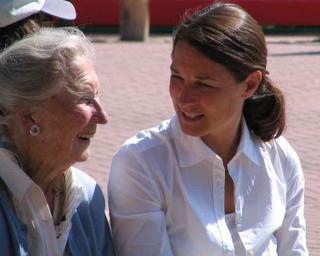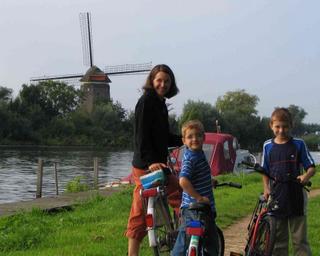How do you measure closeness with another person, particularly one you have spent almost 20 years with? More specifically, if you spend a concentrated period of time together with that person, how does it change the relationship?
During the time we have known each other, Yvonne and I have never spent eight weeks in constant company. Nor have we ever had such a steady barrage of mundane but important decisions to make: where do we stay, how long do we stay, what do we eat, how do we keep the children from driving us crazy without driving them crazy instead?
For some of the trip, we had a well-planned itinerary (thanks to Yvonne, our logistics expert). For much of the trip, however, we had no fixed plan. These parts were more challenging than we had expected, because children are less flexible travelers – when they are hungry, they have to eat, and when they have had enough, you have to stop.
So there were many pitched debates, usually made speeding along the highway, often after a less than optimal nights’ sleep, with kids wailing in the background. Tempers flared, voices were raised as far as we thought we could raise them without terrifying the kids, and decisions were reached, often accompanied by gnashing of teeth.
At home, these conflicts occur much less frequently and it is always possible to spend a couple of hours (or days) “cooling off.” On an extended trip, no such escape valve exists. After weeks of making the same kinds of stressful decisions with the same unconstructive interactions, we both started learning more about getting along with each other.
Here is what we learned – depending on how you make decisions, your points of discomfort are very different. Yvonne is a linear, methodical thinker. She wants to gather all the facts to make an optimal decision, and is uncomfortable leaping to a conclusion without thinking it through logically.
On the other hand, I am an intuitive, somewhat scattered thinker. I am perfectly happy making a decision with little (or no) information, and am very uncomfortable trying to explain how I got to that decision (because in fact there is no logical explanation).
Knowing all this doesn’t make the decision-making process much easier, but at least it helps us understand where the conflict comes from. I can predict when and why in the discussion Yvonne will decide I am a schmuck and also the point at which I will turn up the radio and stare fixedly at the road.
Just as pressure makes diamonds, stresses build relationships. To paraphrase Nietzche, “the vacation that does not destroy your marriage will make it stronger.”



